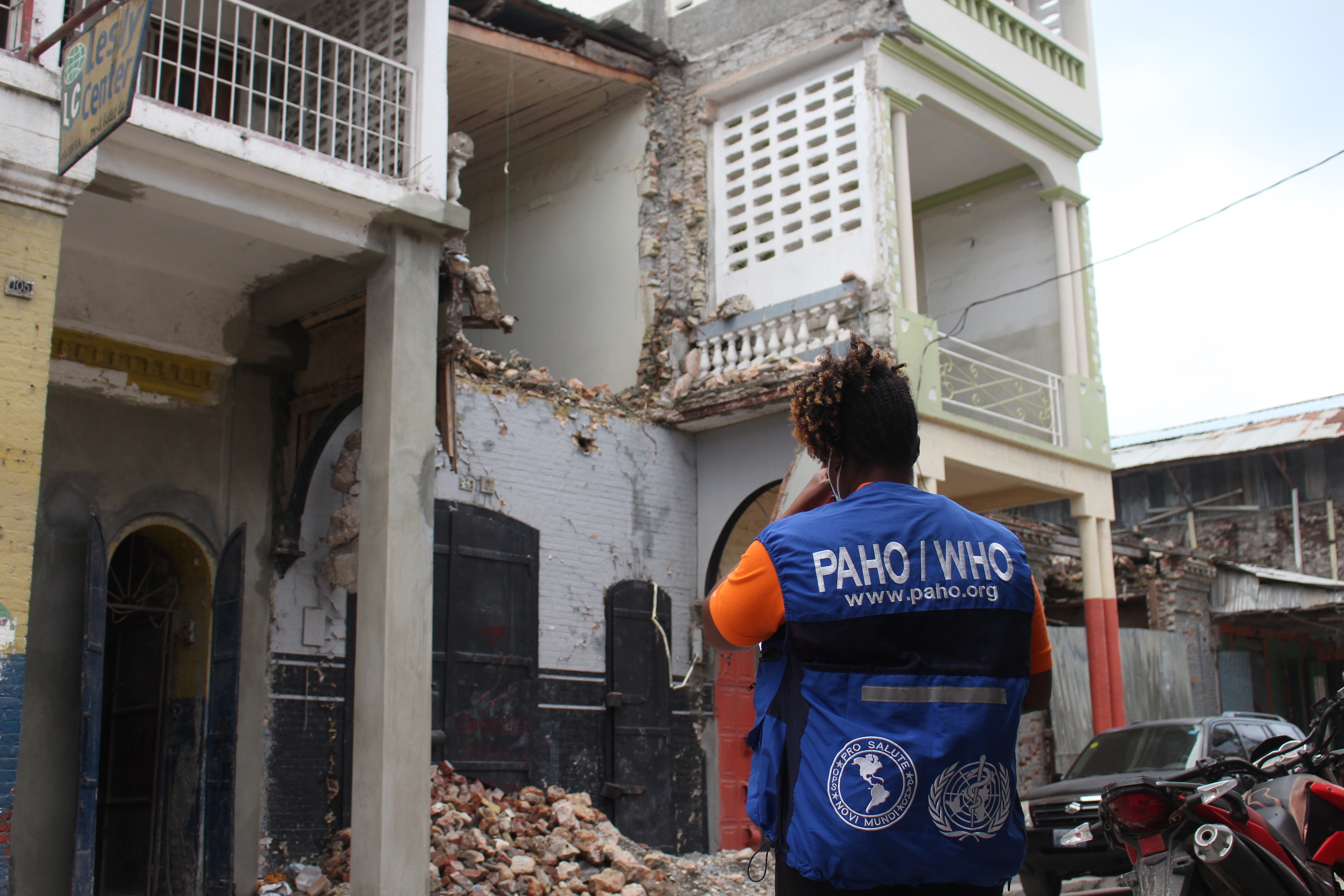Launching a rapid, integrated, post-earthquake response to support health recovery in Haiti
On 14 August 2021, a 7.2 magnitude earthquake struck the southern peninsula of Haiti, killing over 2000 people and injuring more than 12 000. In all, 600 000 people required immediate humanitarian assistance, 150 000 homes were destroyed, and more than 80 hospitals and health centers were damaged.
The Pan American Health Organization/World Health Organization (PAHO/WHO) provided effective support to the Haitian government in the emergency and immediate recovery phases of the response. Multidisciplinary field response teams, set up on site in each of the affected administrative divisions, known as departments, continued their work to maintain and re-establish essential health services three months after the earthquake to facilitate the transition from immediate response to recovery efforts.
How did Haiti do it, and how did the WHO Secretariat support Haiti?
- Delivering emergency supplies – To respond to pressing supply and equipment needs on the ground during the emergency phase of the response, PAHO/WHO leveraged its global supply chain to receive and dispatch more than 80 tons (400 cubic meters) of emergency medical products and equipment worth 1.2 million US dollars to the affected areas. Over 70 health facilities benefitted from this support.
- Damage assessment – In the days following the earthquake, PAHO/WHO experts assisted Ministry of Public Health and Population officials in rapidly assessing structural, water, and sanitation damage to health infrastructure in the three departments. More detailed damage assessments of three major hospitals in the earthquake-affected area were conducted by an expert structural engineer from the PAHO/WHO SAFE/SMART Hospitals Initiative. This critical information supported development of the health sector component of the post-disaster needs assessment and national reconstruction plan.
- Coordination – As the lead agency for health, PAHO/WHO supported the Ministry of Public Health and Population and the Directorate General of Civil Protection by organizing and facilitating coordination Weekly health response coordination meetings were held involving dozens of health actors in Haiti. PAHO/WHO helped coordinate the deployment of 18 emergency medical teams from other countries; they attended over 30 000 people in the three earthquake-affected departments. Multidisciplinary field response teams were established in health directorates in each of the three departments to re-establish essential health services including maternal and child health, mental health, and vaccination.
- Establishing an early warning system for outbreak detection – Earthquake-hit populations relocated to assembly points where the risk of disease outbreak was high. To enable rapid detection and response to any new outbreaks, PAHO/WHO supported the Ministry of Public Health and Population in establishing the first Early Warning and Response System in Haiti. Local personnel were trained, and mobile data collection devices and internet access were provided at 37 assembly points enabling local data analysis and regular reporting to the departmental and central levels. Nurses were deployed to help screen, collect specimens, and test for selected infectious diseases, including COVID-19. This was particularly important in the context of the resurgence of COVID-19 due to the Delta variant. Through this initiative, over 2800 people were sampled (for COVID-19 and diarrheal diseases) and over 100 alerts were investigated.
- Developing capacity to deliver mental health support – Psychosocial support and mental health care were identified as major, urgent needs. PAHO/WHO provided technical support to departmental health directorates to establish mental health coordination units that organized integrated mobile clinics providing immediate psychological support in the affected population. Psychological first aid training of trainers was rapidly organized; 41 trainers in four departments of the Great South of Haiti trained 610 community health workers in psychological first aid.

Photo Credit: © PAHO/WHO
Photo Caption: Damaged building in the city centre of Jeremie, capital city of the Grand’Anse Department
Through its support to national authorities in the rapid needs assessment, coordination of health sector partners, and the rapid mobilization of human, financial and material resources, WHO/PAHO provided critical support in the emergency and immediate recovery phase. This has already improved mental and physical health outcomes for thousands of Haitians affected by the earthquake. The longer-term impact is yet to be realized, but the many lessons already learned from the earthquake response are expected to strengthen multi-hazard preparedness and response capacity in Haiti, a vulnerable population that has been experiencing increased seismic activity since the August 2021 earthquake.
Photo Credit: ©PAHO/WHO
Photo Caption: An assembly point for people displaced by the earthquake in the Corail commune, Grand’Anse Department.
